Sample information |
|
| Picture |
|
|---|---|
| Location | |
| Collection date | 09/27/2019 |
| Captive / Cultivated? | Captive / Cultivated |
| Group | Woburn Memorial High School |
| Observations | Wolbachia positive fruit fly from The Wolbachia Project |
| Putative identification | Arthropoda Insecta Diptera |
Methods |
|
| Extraction kit | Edwards Buffer |
| DNA extraction location | Whole arthropod |
| Single or Duplex PCR | Duplex Reaction |
| Gel electrophoresis system | MiniOne |
| Buffer | TBE |
| DNA stain | GelGreen |
| Gel images |
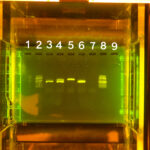
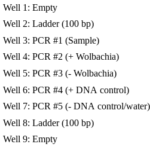
|
| Protocol notes | Duplex PCR was performed |
Results |
|
| Wolbachia presence | Yes |
| Confidence level | High |
| Explanation of confidence level | The purpose of this experiment is to isolate DNA from organisms and determine if there is Wolbachia DNA present by using PCR. Arthropod samples were lysed and the DNA was extracted from the samples. PCR was used to amplify the CO1 gene found in arthropods and the W16S gene found in Wolbachia. The CO1 gene has a length of 708 base pairs and the W16S gene has a length of 438 base pairs. There were 5 samples that were run through PCR: a sample, +Wolbachia, -Wolbachia, a +DNA control, and a -DNA control (water). The +Wolbachia and the +DNA control were expected to have two bands, one at 708 BP (CO1) and one at 438 BP (W16S). As seen in Figure 2, well 4 (+Wolbachia) and well 6 (+DNA control) had two bands as expected. The -Wolbachia sample was expected to have one band at 708 bp. As seen in Figure 2, well 5 (-Wolbachia) had one band as expected. The -DNA control (water) was expected to have no bands as it should not contain DNA. As seen in Figure 2, well 7 (-DNA control) did not have a band. Lastly, the sample should have either one or two bands, depending on if the arthropod was infected. As seen in Figure 2, well 3 (sample) had one band at 708 bp and one at 438 bp, meaning that the sample was infected with Wolbachia. Due to the controls having the expected results, the experimental results are valid. It can be said with high confidence that the sample was infected with Wolbachia. |
| Wolbachia 16S sequence |
Primers provided by Wolbachia Project
BLAST at The Wolbachia Project BLAST at NCBI
|
| Arthropod COI sequence |
Primers provided by Wolbachia Project
BLAST at The Wolbachia Project BLAST at NCBI
|
| Summary | The Diptera was found to be postive for Wolbachia. |
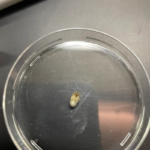 Armadillidium vulgare
Armadillidium vulgare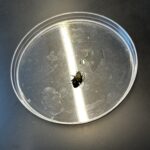 Bee
Bee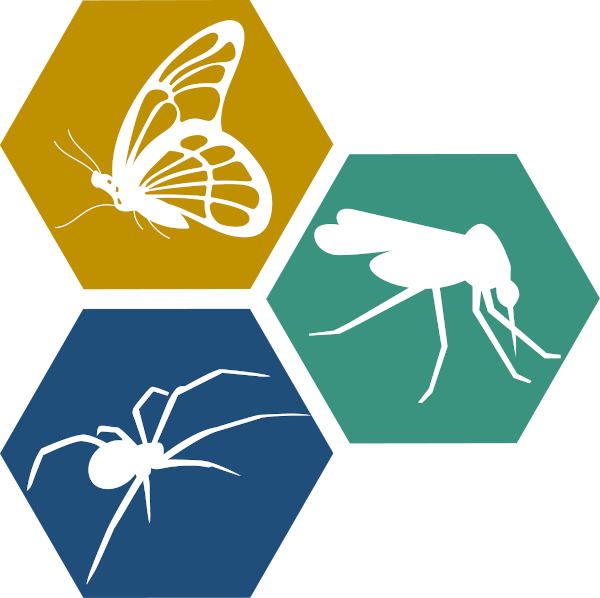 Ground Beetle
Ground Beetle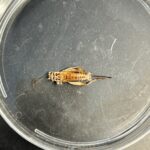 House Cricket 8A
House Cricket 8A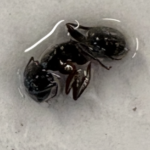 6J Ant
6J Ant